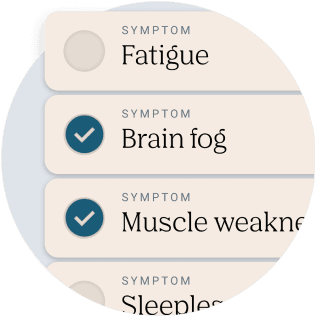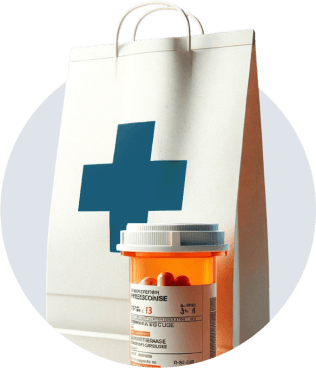
Reduce Your Long COVID risk by as much as 53%
Metformin may be used off-label to minimize COVID-19 symptoms and reduce Long COVID risk.
Only pay if your prescription is approved
How does it work?
Access to medications as easy as 1-2-3




Pay zero fees if you're not approved.


Affordable Access to Metformin
Key Benefits
Is Metformin right for me?
Metformin has been shown to help with:
- Minimizing acute COVID-19 symptoms
- Reducing viral load
- Preventing Long COVID
- Reducing inflammation
Patients experiencing acute COVID-19 or at risk of Long COVID may find metformin a safe and effective preventive treatment option.
What Does the Research Say?
Safety Is Our Top Priority
llene S. Ruhoy
MD, PhD, Neurologist
Sarah Almilli
PharmD, APh., IA, Clinical Pharmacist
Stuart Malcolm
MD, Internist
Jennifer Curtin
MD, Internist
Safety Is Our Top Priority
1. All treatments, including pyridostigmine, are carefully reviewed by RTHM clinicians and pharmacists.
2. We use dosing protocols designed to minimize side effects and ensure safe use.
3. Comprehensive treatment guides are vetted by our expert clinical team.
As you navigate your health journey, we're here to provide safe and effective care.
llene S. Ruhoy
MD, PhD, Neurologist
Sarah Almilli
PharmD, APh., IA, Clinical Pharmacist
Stuart Malcolm
MD, Internist
Jennifer Curtin
MD, Internist